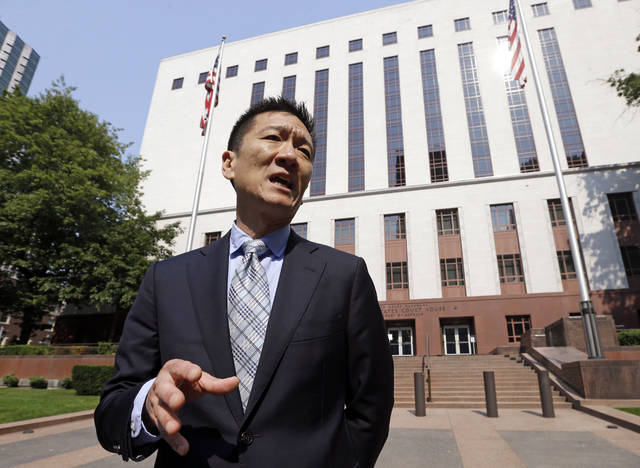Hawaii plans challenge to third travel ban

ASSOCIATED PRESS
“Hawaii fought the first and second travel bans because they were illegal and unconstitutional efforts to implement the President’s Muslim ban,” Attorney Gen. Doug Chin announced today. “Unfortunately, the third travel ban is more of the same.”
The state of Hawaii will seek permission Friday in U.S. District Court in Honolulu to file an amended complaint to challenge the legality of President Donald Trump’s latest travel ban.
“Hawaii fought the first and second travel bans because they were illegal and unconstitutional efforts to implement the President’s Muslim ban,” Attorney Gen. Doug Chin announced today. “Unfortunately, the third travel ban is more of the same.”
The latest restrictions, issued Sept. 24 as a presidential proclamation, will block travel to the United States by most citizens of Chad, Iran, Libya, North Korea, Somalia, Syria and Yemen as well as some Venezuelan officials. They are due to take effect Oct. 18.
“This new ban still discriminates on the basis of nationality, it still exceeds the President’s legal authority, and it still seeks to implement his Muslim ban,” Chin said. “Simply adding an obvious target like North Korea to the list and banning travel by some government officials from Venezuela does nothing to disguise this. And – unlike the first two versions – Travel Ban 3.0 has no end date.”
Hawaii notified the U.S. Supreme Court today that it planned to ask the federal District Court to lift a stay of proceedings in the case, Hawaii v. Trump, so the state could file an amended complaint to temporarily block the new travel directive. The American Civil Liberties Union already is challenging that directive in federal court in Maryland.
Earlier today, the Trump administration urged the Supreme Court to dismiss two cases challenging the previous travel ban that was issued in March, saying that they were no longer germane.
Don't miss out on what's happening!
Stay in touch with breaking news, as it happens, conveniently in your email inbox. It's FREE!
“A case is moot when a challenged government regulation is replaced by one that is not substantially similar,” Solicitor General Noel. J. Francisco wrote in his letter to the court. He said the new restrictions were based on detailed findings regarding U.S. national security interests.
Hawaii argued that the issue and the case remain alive and called on the high court to “adjudicate the legality of the president’s ongoing effort to usurp Congress’s power of immigration and unilaterally ban hundreds of millions of foreign nationals — the overwhelming majority of them Muslim — from the United States.”





